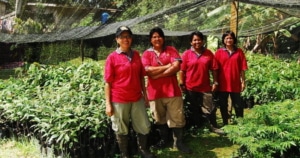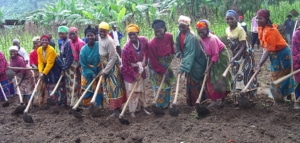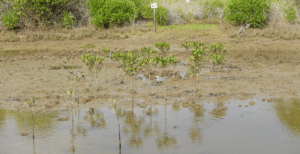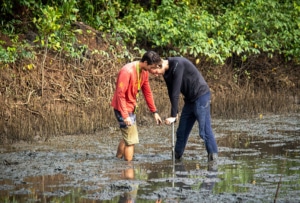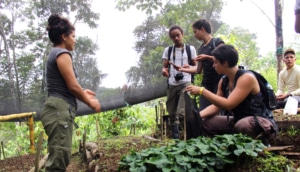Oceanus Conservation
Oceanus Conservation is a youth- and women-led organisation focusing on the conservation and restoration of ‘blue carbon’ habitats in the Philippines.
At A Glance
- Programme: More than Carbon
- Years Funded: 2022, 2023, 2024
- Ecosystem Focus: Coastal
- Species Focus: Plants
- Geographic Focus: Asia
- Website: https://www.oceanusconservation.org/
Oceanus Conservation serves to protect and restore carbon-rich marine habitats (‘blue carbon’) and the surrounding wildlife to contribute to the conservation, education, and community development of the Filipino people. It believes in sustaining biodiversity in order to provide ecosystem services such as food security for the Filipino people in the upcoming years.
Oceanus Conservation hopes to become a leading organisation in the conservation of blue coastal ecosystems and be able to achieve the United Nations’ sustainable development goals (SDGs) to benefit the Filipino people. It is data-driven and engages multi-stakeholders to address national priorities. Oceanus Conservation aim to focus on Goal Two ‘Zero Hunger’, Goal Four ‘Quality Education’, Goal Fourteen ‘Life Below Water’ and Goal Fifteen ‘Life on Land’ of these SDGs.
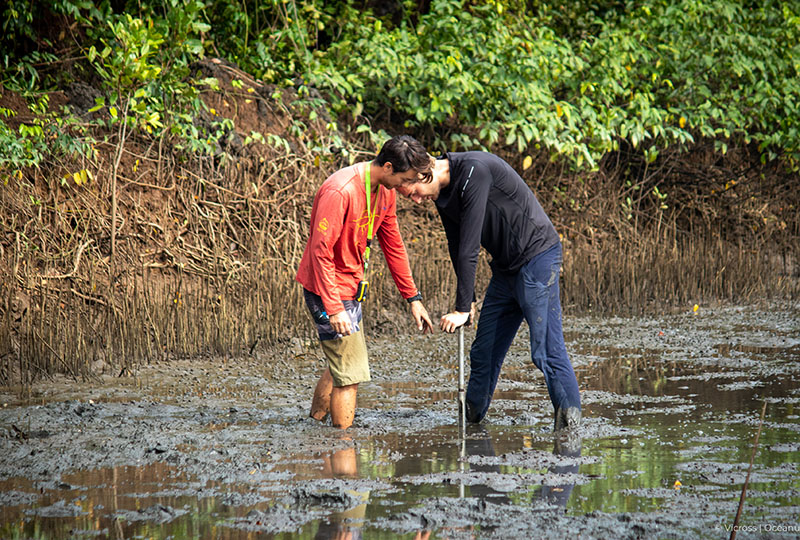
Many of the most carbon-rich habitats are overlooked, semi-aquatic ecosystems such as mangroves, tidal marshes, and seagrass meadows. Image © Oceanus Conservation
It has worked on many projects such as coral reef monitoring and blue carbon conservation. It emphasises community development and ocean education for Filipino people. Oceanus Conservation believes in the need of resilience in local communities in changing environments. It hopes to do to this by increasing access to resources to build knowledge whilst offering capacity strengthening and education opportunities. Its goal is to sustainably maintain food security for future generations.
Oceanus Conservation has been working on creating ocean storybooks for local children in communities, and also widen their outreach by translated these books to other international languages. Synchronicity Earth are supporting Oceanus Conservation’s community-based ecological mangrove restoration programme through the More Than Carbon initiative.

